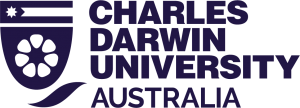Introduction
Open Educational Resources (OER) are teaching and learning materials freely available online for anyone to use (Charles Darwin University). This post has been created by using open resources and in turn, is itself an open resource for others to use. Read our license details in the FAQ.
Open resources can range from textbooks for Higher Education study, sound, image and video material. Open Educational Practices (OEP) is another acronym that relates to this area and is concerned with the development, implementation and use of OER but can extend to open access data, open policies and open learning designs.
Read more about two different types of OER in More Detail below, then take a look at the activities under ‘Try’ and finally, share your thoughts and comments using the prompts given in Share.
Try
Watch
A Review of the Effectiveness & Perceptions of OER as compared to textbooks (4mins)
Download
Signup to Freesound or Flikr and download a resource that is licensed for reuse (CC BY or CC 0).
Search
Read About CC Search and then search the Creative Commons website to search for an image that can be modified or adapted.
More Detail
Open Textbooks
An open textbook is a textbook licensed under an open copyright license and made available online to be freely used by students, teachers and members of the public. BC Campus
The first step is to access an open textbook. BCcampus provide an amazing collection of open textbooks as well as other resources like quizzes, test banks, slides and videos.
Image and video resources
You might be familiar with YouTube, Flickr and TEDx resources. These platforms provide material that may be licensed for free reuse and re-purposing. For example: use the filter in YouTube to find videos that have a Creative Commons licensing. Other websites provide sound and music files that can be repurposed and used for educational purposes. One that I have used is freesound where files are easy to preview, clearly marked with different license attributes and filtered by type, sample rate and bit depth.
Read more here: Charles Darwin University OER Library Guide
Share
Share your thoughts on the research that was documented in the video above from Hilton (2016).
Have you used any OER’s recently? What did you use them for, and how did you find them?
Reminder: Track your Professional Development with this form. Record of evidence form



Are you interested in research in the OER area? Check out this Knowledge Cloud https://oerknowledgecloud.org/